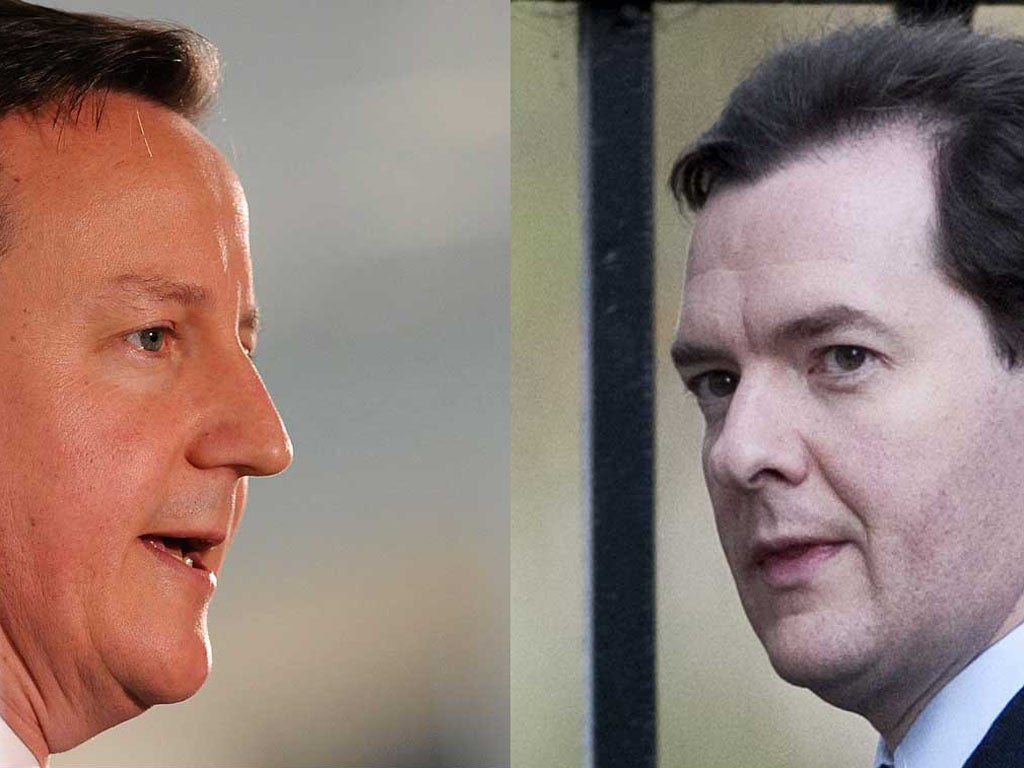Your support helps us to tell the story
From reproductive rights to climate change to Big Tech, The Independent is on the ground when the story is developing. Whether it's investigating the financials of Elon Musk's pro-Trump PAC or producing our latest documentary, 'The A Word', which shines a light on the American women fighting for reproductive rights, we know how important it is to parse out the facts from the messaging.
At such a critical moment in US history, we need reporters on the ground. Your donation allows us to keep sending journalists to speak to both sides of the story.
The Independent is trusted by Americans across the entire political spectrum. And unlike many other quality news outlets, we choose not to lock Americans out of our reporting and analysis with paywalls. We believe quality journalism should be available to everyone, paid for by those who can afford it.
Your support makes all the difference.George Osborne left David Cameron in the dark about the EU’s unexpected demand for £1.7bn for days, it has emerged.
Despite the Chancellor knowing about the bill since the beginning of the week, the Prime Minister was only told on Thursday, when he was on his way to meet other leaders at a European summit.
Mr Cameron is said to be fuming about the surcharge and was forced to defend the Treasury, while battling other EU heads of government to drop the extra charge.
Danny Alexander, the Chief Secretary to the Treasury, also knew about the bill before Mr Cameron was informed.
Speaking at a press conference in Brussels, the Prime Minister said: “This is completely unacceptable. It is an unacceptable way for this organisation to work – to suddenly present a bill like this for such a vast sum of money with so little time to pay it.
“It is an appalling way to behave. I am not paying that bill on December 1. If people think I am they have got another thing coming.”
Glossing over whether he had been left out of the loop for too long, he added: “You can all do 'Who knew what whens' and all the rest of it but actually, frankly, you don't need a Cluedo set to know that someone has been clubbed with the lead piping in the library."
Jose Manuel Barroso, the outgoing president of the European Commission, said that notwithstanding Mr Cameron’s claims to the contrary, the bill should have been expected and the charge was based on figures from the UK’s own statistics body.
“This should not have come as a surprise to the member states as the maths is based on the overall resource decision they have agreed on unanimously,” he said.
“Of course I understand the concerns it has raised in London, but member states have to accept that sometimes these decisions happen,” he added.
The revelation that the Dutch Government had put aside reserves to cover a bigger EU bill further undermined the Prime Minister’s case that the UK Government was surprised by the demand.
Mr Cameron won the backing of the prime ministers of Italy, the Netherlands, Malta and Greece at the summit, but Angela Merkel and Francois Hollande, whose countries are due to receive rebates, are both keen to preserve the status quo.

Join our commenting forum
Join thought-provoking conversations, follow other Independent readers and see their replies
Comments